
Harriman helped lay the groundwork for Biden in his support for imperialistic foreign policies worldwide
Joe Biden has established a reputation over his long political career as a neo-conservative war hawk. He will be remembered as the president who supported Israeli genocide in Gaza and triggered a new Cold War with Russia while funneling billions of U.S. taxpayer dollars to a corrupt Ukrainian regime whose army contains neo-Nazi militias.
Very few people are aware that, when Biden first entered the U.S. Senate in the 1970s, he was mentored by W. Averell Harriman, the son of a Gilded Age robber baron, who was a founder of Brown Brothers Harriman, the storied Wall Street investment firm, and is known as the father of the original Cold War.
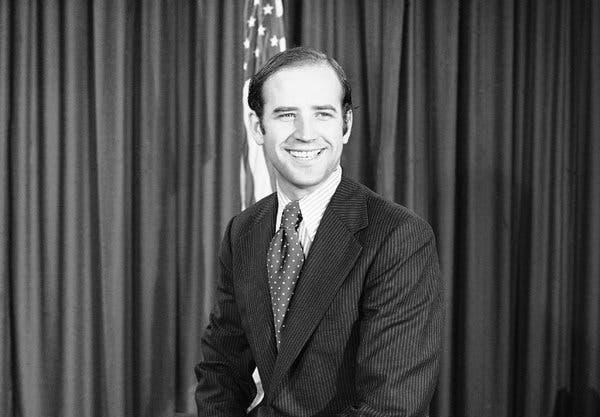
Biden discussed Harriman’s influence on his career in his 2007 memoir, Promises to Keep, stating that he was “adopted by Harriman” when he entered the Senate in 1973 as a “thirty-year-old kid.”[1]
Biden recalled that, when the two traveled together to Yugoslavia for a funeral in the late 1970s, Harriman predicted to him that the Soviet Union would collapse and told him that he should “get to know Yugoslavia” because it was an “area we could bring into the 21st century as an ally.”[2]
Biden heeded those words two decades later when he supported secessionist movements that fueled the break-up of Yugoslavia and U.S.-NATO bombing operations, which culminated with the building of a giant U.S. military base at Camp Bondsteel.
Dark Skeletons in His Closet
Biden’s memoir unsurprisingly leaves out the many skeletons in Harriman’s closet, chief among them his business dealings with Nazis and treasonous conduct.
Anthony Gronowicz reports in his book, Last Western Empire: A History of US Foreign Policy (New York: Koba Books, 2021), that, in the 1930s, Brown Brothers Harriman, co-run by George Herbert Walker, George H.W. Bush’s grandfather, financed the shipment of tetraethyl lead (a gasoline additive) to the German Nazi Air Force through the Ethyl Corporation.
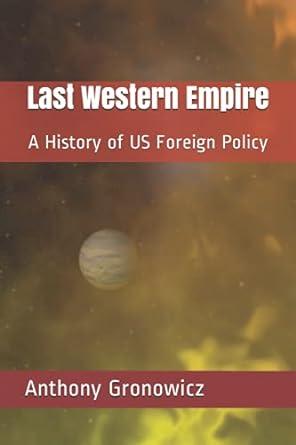
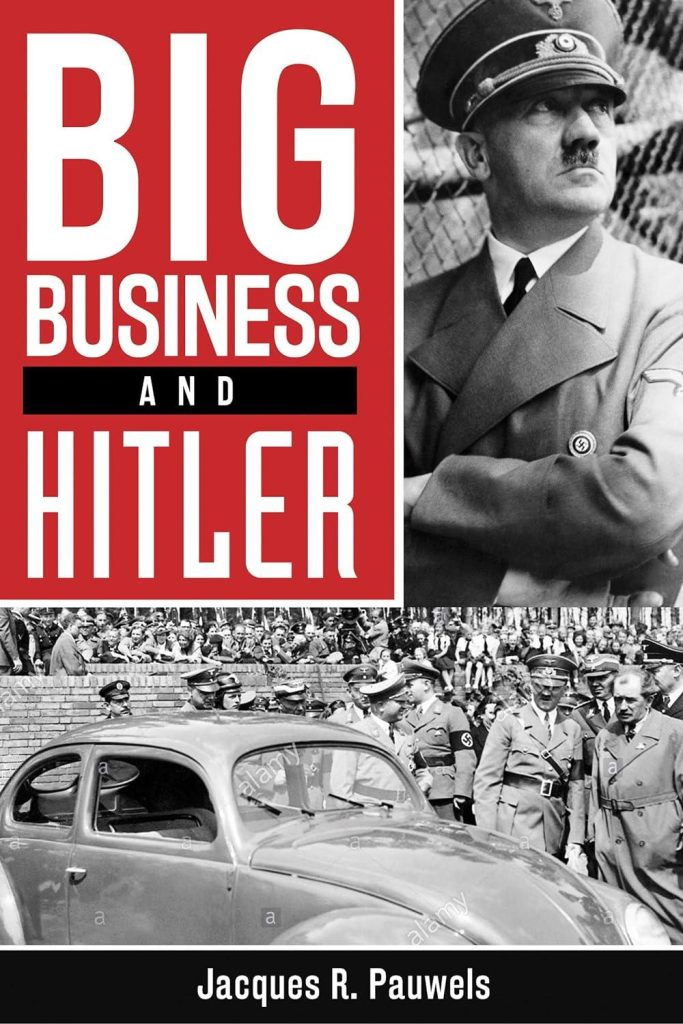
Jacques R. Pauwels, in another important study entitled Big Business and Hitler, placed Harriman Brothers & Company, then managed by Harriman, at the center of an investment offensive in Germany during the 1930s by big American banks.[3]
Pauwels writes that Harriman Brothers & Company did “wonderful business with Fritz Thyssen,” head of a German banking and steel empire, who bankrolled Hitler’s rise to power, earning him the nickname “Hitler’s angel.”[4]
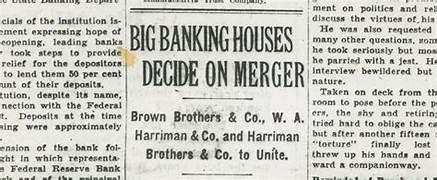
Thyssen’s United Steel Works served Hitler’s war machine throughout the war and Hitler built the Auschwitz death camp close to Thyssen’s steel works, which boosted its profits through use of Jewish, Roma and communist slave labor.[5] Thyssen’s business partner, Friedrich Flick, was co-owner of I.G. Farben, which manufactured the gas used to asphyxiate Jews and others in the ovens of the Nazi concentration camps.
Harriman directly partnered with Thyssen (as well as George Herbert Walker, Prescott Bush’s father-in-law) in setting up the Union Banking Corporation (UBC) on Wall Street, whose main client was a bank that Thyssen owned in Rotterdam.
Ben Aris and Duncan Campbell wrote in The Guardian that, by the late 1930s, UBC, managed by Prescott Bush, and Brown Brothers Harriman collectively bought and shipped millions of dollars of gold, fuel, steel, coal and U.S. treasury bonds to Germany, both feeding and financing Hitler’s build-up to war.[6]
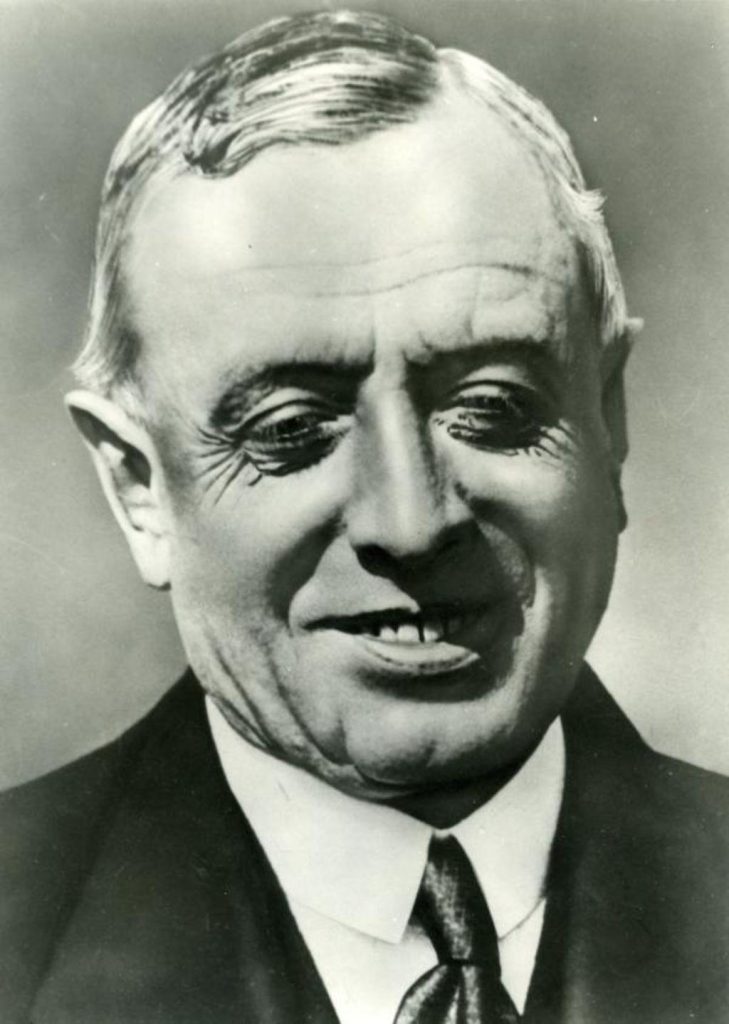
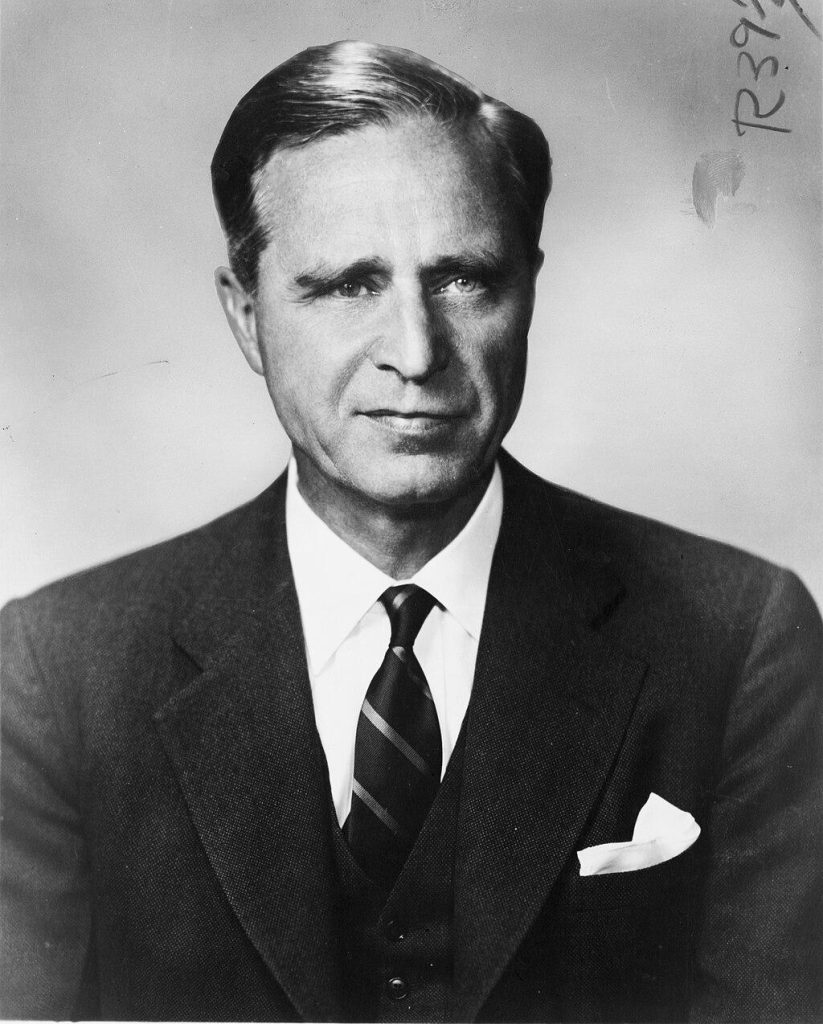
When the Polish government tried to compel Thyssen’s consolidated Silesian steel company to pay its full share in back taxes, Harriman hired Sullivan and Cromwell, a Wall Street firm for which future CIA Director Allen Dulles was an attorney, to squelch the effort. Thyssen ultimately sold the consolidated Silesian steel company, which had used slave labor, to UBC, which was complicit in the Holocaust.[7]
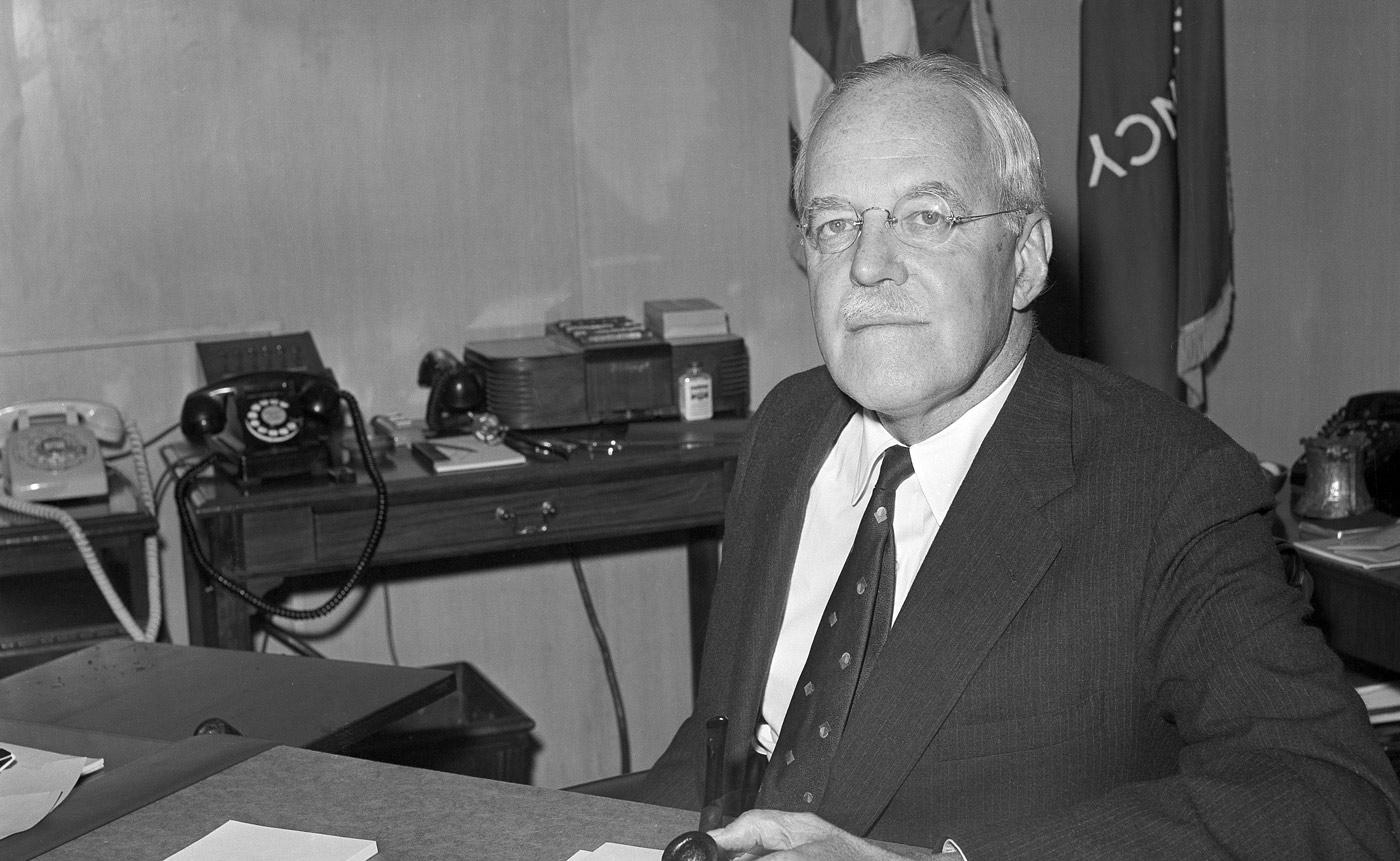
Cold Warrior
After the war, as the State Department probed into Harriman and his associates’ violation of the U.S. Trading with the Enemy Act, Harriman and the Dulles brothers began fabricating charges of communist sedition in the Roosevelt administration as an attempt to divert public attention.[8]
Appointed as Roosevelt’s ambassador to Moscow, Harriman was a leading hawk in the Truman administration who is considered by historians as one of the “fathers of the Cold War.”
James Roosevelt, FDR’s son, said that his father was able to control anti-Soviet hawks like Harriman and keep them in check, which was not true of Truman or his successors.
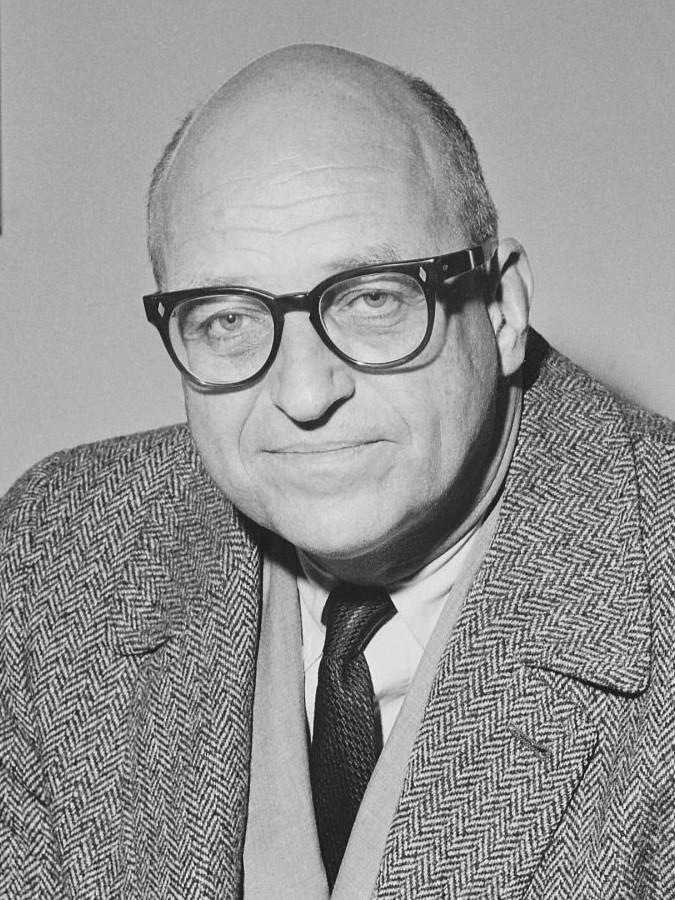
Later, history was rewritten to make it seem that Harriman was one of the “wise men” “present at the creation” who helped craft the visionary containment strategy that led to America’s Cold War victory.[9]
In reality, the containment strategy caused a dangerous arms race, growing domestic authoritarianism, inequality, inflation and indebtedness, and catastrophic wars in Korea and Vietnam along with smaller-scale conflicts.[10]
The Anti-Wallace
Until 1928 Harriman was a Republican, but switched over to the Democratic Party because he objected to the Republican Party’s isolationism.[11]
James V. Forrestal, the first Secretary of Defense, recalled Harriman telling him at the end of World War II “that the outward thrust of Communism was not dead and that we may have to face an ideological warfare just as vigorous and dangerous as Fascism or Nazism.”[12]
Harriman advocated a policy of strength and firmness and, according to Truman, an “abandonment of any illusion that the Soviet Union was likely to act in accordance with the principles of international relations to which the rest of the world held.”
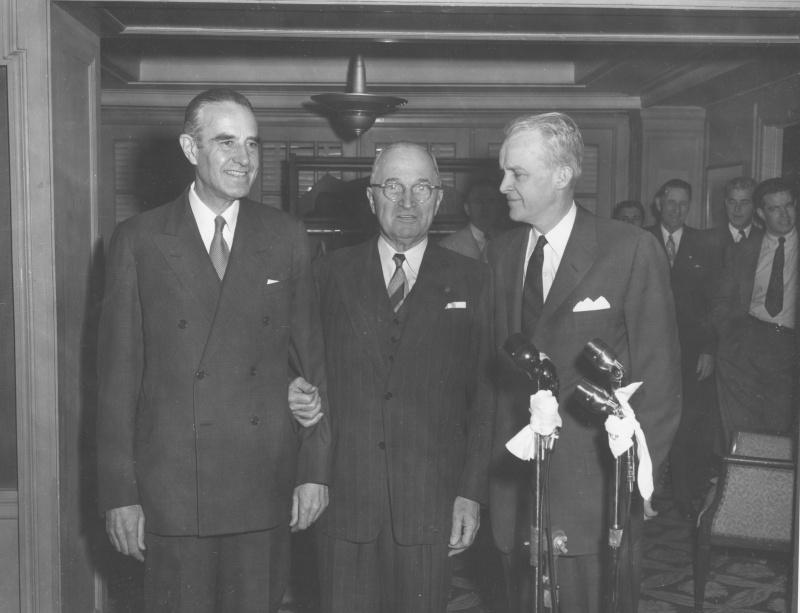
When Harriman entered the presidential field in 1952, he used red-baiting tactics, attacking Republican Senator Robert Taft (OH) as “the candidate that Stalin would like to see elected.”[13]

Harriman’s personal hatred of communism stemmed in part from naked economic self-interest as he had lost out on investments in Eastern Europe from communist nationalization policies.[14]
Harriman’s conservative political instincts were apparent in his tenure as governor of New York in the mid-1950s when, on his first day, he gave a stern lecture to the legislature for living beyond its means and proceeded to enact economic policies “more reminiscent of [Herbert] Hoover than of the New Deal,” according to biographer Rudy Abramson.[15]

In 1946, Harriman was appointed by Truman as Secretary of Commerce, replacing Roosevelt’s former Vice President Henry Wallace, who was fired after giving speeches calling for peaceful relations with the Soviet Union and the closing of U.S. air bases around the world.
Wallace had criticized Harriman for giving “get tough with Russia” speeches promoting the myth that “communists in every country in the world were simply stooges for Stalin and that they were out to overthrow our form of government.” According to Wallace, Harriman thought that “we are in the same position relative to Russia in 1946 that we were relative to Germany in 1933; that the important thing is to stop Russia before she expands any further.”[16]
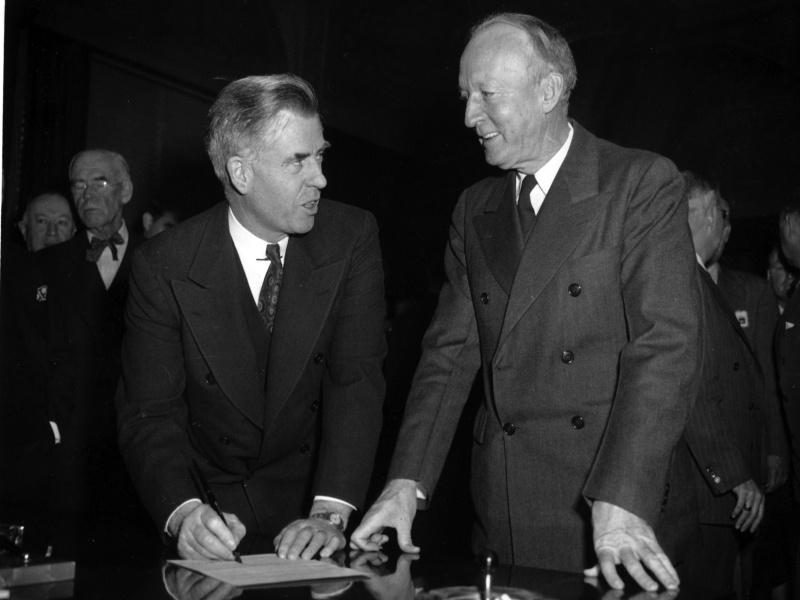
In 1947, Harriman was put in charge of running the Marshall Plan, a large-scale U.S. aid program to Western Europe that was designed to create middle class growth so as to curtail the growth of leftist and communist movements and to isolate the Soviet Union.
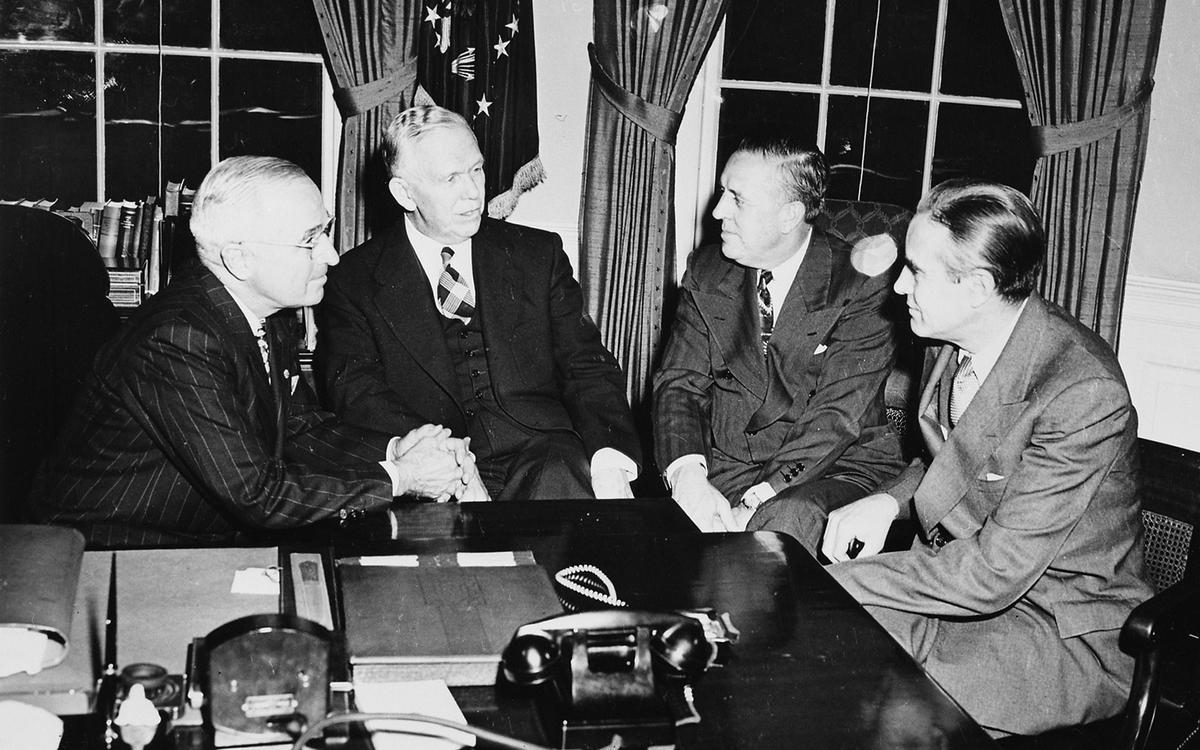

To assist in implementing the Marshall Plan, Harriman hired Thomas McKittrick, a close friend of John Foster and Allen Dulles and wartime president of the Bank for International Settlements (BIS), which had functioned as a “channel for the perpetuation of Nazi economic interests in the United States.” McKittrick’s gold and foreign exchange deals with the German Reichsbank during the war amounted to treason, according to historian Adam Lebor.[17]
In 1949, Harriman supervised disbursements to fund counter-demonstrations against a 1949 Soviet peace conference that was the Kremlin’s response to the formation of the North Atlantic Treaty Organization (NATO), which Harriman championed as did Biden years later.[18]
Harriman enlisted U.S. labor union leaders to support the counter-demonstrations, draining energy and resources that could have been used to improve the quality of life of U.S. workers.
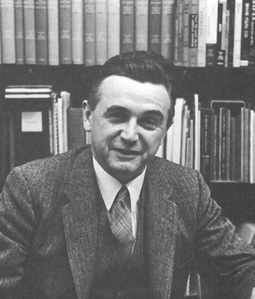
With support from the CIA-linked Rockefeller Foundation, Harriman used a part of his fortune to create, at Columbia University in 1946, the first academic center in the U.S. devoted to the study of Russia and the Soviet Union. The first director, Philip Mosely, fittingly, “evinced little sympathy for the USSR,” according to historian David C. Engerman.[19]
The Empire’s Man Doing Wall Street’s Bidding
After his stint with the Marshall Plan, Harriman directed the Mutual Security Agency, which established the Economic Cooperation Administration (ECA), a precursor to the United States Agency for International Development (USAID), a pivotal instrument in the Cold War that provided technical aid and police training to support anti-communist regimes.
Harriman also served as an aide to President Truman during the Korean War, traveling to South Korea to help provide advice and support to Syngman Rhee, a brutal tyrant who slaughtered more than 100,000 South Koreans before the Korean War even broke out.[20] Harriman was close friends with General Douglas MacArthur, though, according to Rudy Abramson, convinced Truman to fire MacArthur after he threatened to take the war into China.[21]
In his stint as Commerce Secretary, Harriman supported the efforts of the Wall Street-financed Japan lobby to curtail the break-up of Japanese Zaibatsu, or business conglomerates, that had supported Japanese militarists in World War II, and to break Japan’s left-wing movement.[22]
The Truman administration’s “reverse course” paved the way for decades of conservative rule, the opening of Japan’s economy to Wall Street banks and the Rockefeller dynasty, and Japan’s acquiescence to the presence of hundreds of military bases on its soil.[23]
In 1951, when Iranian Prime Minister Mohammad Mosaddegh moved to nationalize the oil refinery of the Anglo-Iranian Oil Company (BP) at Abadan, Harriman was asked to head negotiations between Mossadegh and the UK government with the aim of getting Mosaddegh to moderate his position and become convinced that taking over the Abadan refinery was “foolhardy.”
When Harriman arrived in Tehran, 10,000 protesters began milling around the U.S. Embassy shouting “death to Harriman.”[24] Harriman was acquainted with the Shah, whom he told discreetly to mount a coup that would force the removal of Mossadegh (the coup was ultimately consummated by the CIA in 1953).[25]
With the negotiations going nowhere, Harriman derided Mossadegh, claiming that he was “impossible to deal with,” foolish in ignoring his advice, and quixotic in thinking that “the simple passage of legislation nationalizing the oil industry creates profitable business” and that everyone would “help Iran on terms he lays down.”[26]
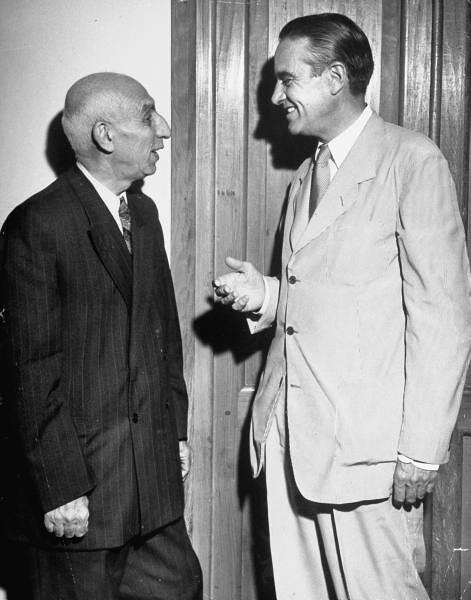
These latter comments reflect a colonial mentality, particularly in the belief that the leader of a country with a proud history must adopt the advice of an emissary of a Western country with a pattern of exploiting the Third World. Mossadegh was further seen to be out of line for having the gall to try to assert national control over his own country’s primary natural resource (oil).
One of the Best and the Brightest
Harriman became a member of the Council on Foreign Relations (aka Wall Street’s think tank) in 1923 and for the rest of his life was committed to its goal of a unipolar world order led by the U.S.
After his appointment as Assistant Secretary of State for Far Eastern Affairs in the Kennedy administration, Harriman was tasked with facilitating an alliance between Laos’s neutralist leader Souvanna Phouma and right-wing generals favored by the CIA in order to undercut the left-wing Pathet Lao. The latter were allied with the communists in Vietnam and had been thrust underground after winning elections.
Heading the U.S. delegation to the 1962 Geneva Conference, Harriman stated: “We must be sure the break comes between the Communists and the neutralists, rather than having the two of them teamed up as they were before.”[27]
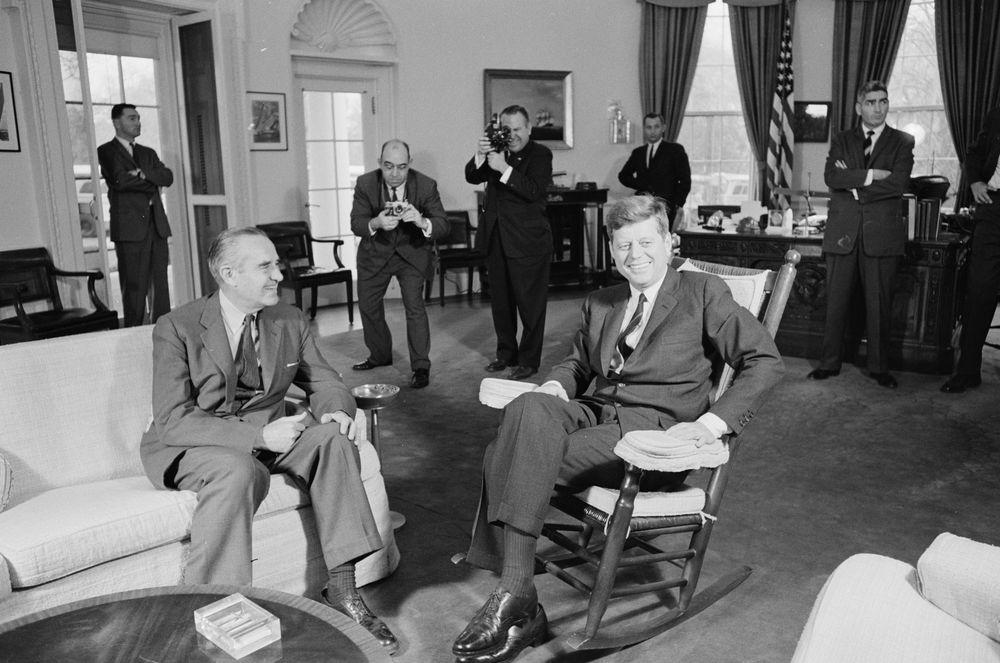
This strategy set the groundwork for a decade-long civil war, with the Kennedy administration financing creation of a clandestine army among the indigenous Hmong to fight the Pathet Lao.
Close to Robert Kennedy, Harriman served on the Special Group on Counter-Insurgency (CI), which embodied the Kennedy administration’s infatuation with violently stamping out “wars of national liberation.”[28]
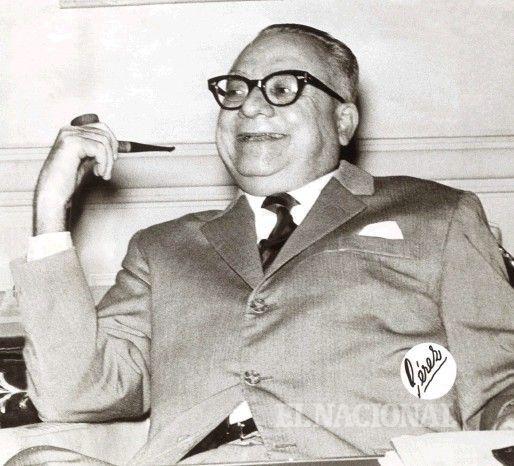
A key toolkit in the CI’s counterinsurgency strategy was the adoption of clandestine police training programs—run out of the USAID’s Office of Public Safety (OPS)—which offered a cost-effective means of suppressing guerrilla movements and provided riot control gear to beleaguered right-wing governments like the Shah’s Iran.[29]
Harriman sanctioned provision of emergency riot control equipment to Venezuela’s center-left government led by Romulo Betancourt in the face of an uprising by leftists who wanted to nationalize Venezuela’s oil industry, which was controlled by Rockefeller interests.[30]
Further, Harriman in his stint with the CI championed training tribal minorities, including the CIA’s clandestine Hmong army which was also funded through the opium trade.[31]
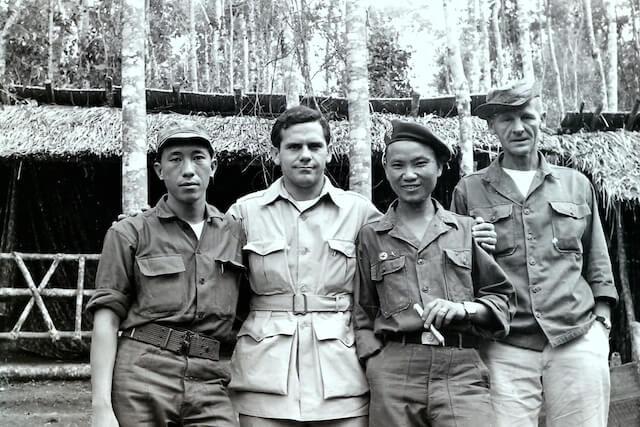
Michael Forrestal, a senior staff member of the National Security Council under Kennedy, said that “Bobby thought Averell was wonderful because he liked and understood the concept of supporting counterinsurgency and he was more prone to new ideas than any of the others who belonged to the group.”[32]
Prior to JFK’s assassination, Harriman helped broker a much-heralded test-ban treaty with the Soviet Union, which was actually meaningless because neither the U.S. nor the Soviet Union had tested nuclear weapons since 1958 and the treaty had a loophole that allowed nuclear testing underground, which the Kennedy administration planned to carry out.[33]
Renowned journalist Seymour Hersh emphasized in The Dark Side of Camelot (1997) that the move for a test-ban treaty and thaw in the Cold War was undertaken by Kennedy out of strategic and political calculation coming at a time when the U.S. had a great advantage in the arms race.
Kennedy had helped provoke the Cuban Missile Crisis and shaped the public mood by which the public favored a cooling of tensions that he presented himself as being poised to deliver after standing down Nikita Khrushchev during the Cuban Missile Crisis.[34]
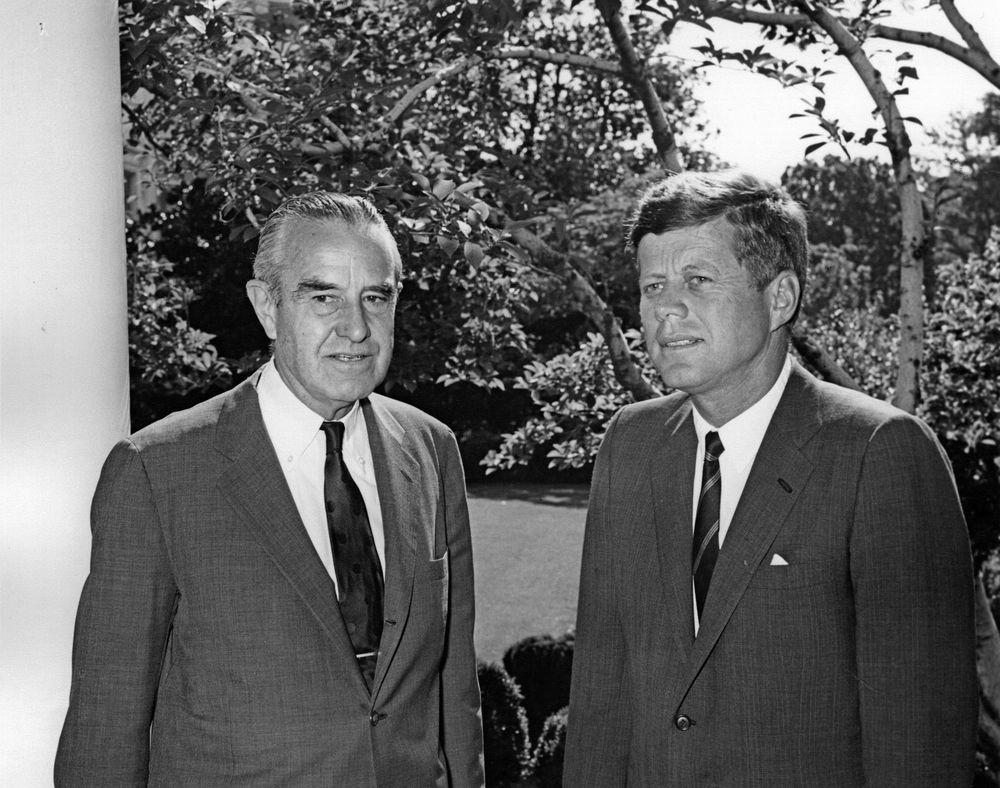
Vietnam and Dominican Republic Hawk
In November 1963, Harriman gave key approval to a CIA coup against Ngo Dinh Diem, the U.S. client in South Vietnam who had been propped up by massive U.S. economic and military aid. The coup destabilized South Vietnamese politics and paved the way for the Americanization of the war.[35]
When Harriman, serving as Undersecretary of State for Political Affairs under Lyndon B. Johnson, met with a North Vietnamese cabinet minister, he told him to stop supporting the southern guerrilla movement (National Liberation Front-NLF), failing to understand that the majority of Vietnamese wanted to see their country unified and the illegitimate U.S client government in the South removed.[36]
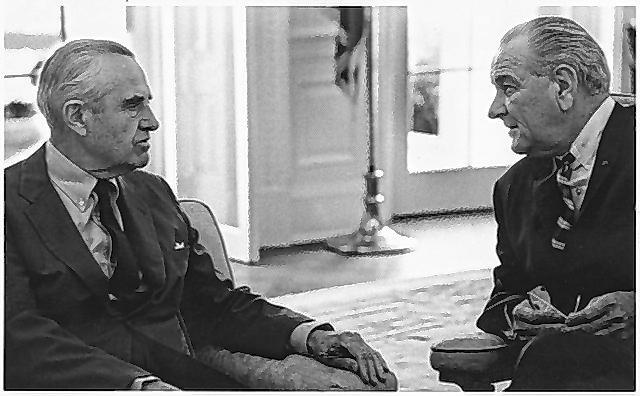
When interviewed for a 1980s PBS history of the Vietnam War, Harriman ironically claimed that the U.S. should have stayed out of Vietnam as Ho Chi Minh was an “Asian type of Titoist” [nationalist communist] who “didn’t want to be dominated by anyone” and was “not a communist expansionist” but a “Vietnamese patriot.”
However, in the crucial period when he was serving in the Kennedy-Johnson White House, Harriman had supported the war, stating that “South Vietnam was the place to engage the communists” while accusing the NLF of “bringing terror, assassination and hardship to the people acting as an arm of aggression from the north.”[37]
When asked about U.S. bombing of North Vietnam, Harriman told a reporter that “allowing South Vietnam to fall would be like letting Hitler march into the Rhineland in the 1930s. It would be as if President Truman failed to act in Korea in 1950.”[38]
Harriman further supported the landing of the U.S. Marines in the Dominican Republic in 1965 on behalf of U.S. sugar interests. When a Peruvian delegation suggested that distinguished statesmen, instead of Marines, should have been dispatched to the Dominican capital, Harriman replied that “moral force would have been as effective against the communists supporting Juan Bosch [leftist Dominican leader] as it was against Lenin and Trotsky in the October revolution of 1917.”[39]
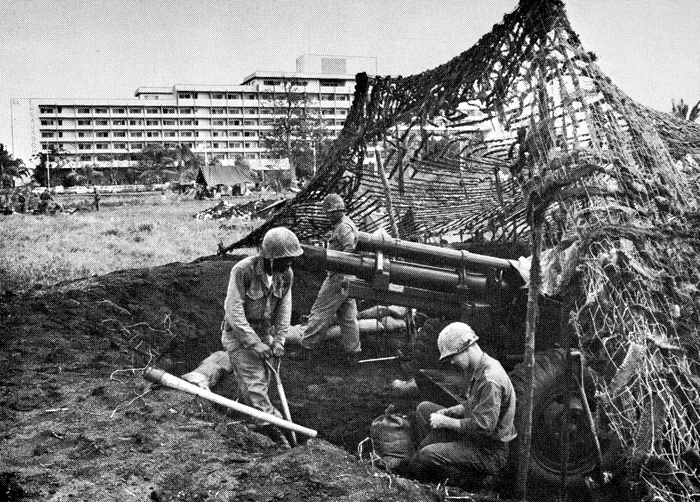
Passing the Torch
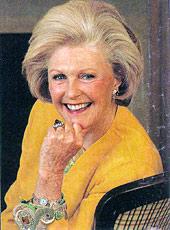
Throughout the 1970s and 1980s, Averell with his wife Pamela served as key benefactors, fundraisers and kingmakers for the Democratic Party, cultivating “moderate leftists” and pro-imperialist leaders like Biden and Bill Clinton. Pamela’s political action committees—“Democrats for the 80s” and “Democrats for the 90s”—supported the “New Democrat” wing of the party, which veered it more to the right on economic and foreign policy issues and purged left-wing elements.[40]
Today Joe Biden carries on Harriman’s legacy as an ardent cold warrior and champion of NATO whose foreign and domestic policies support the interests of Wall Street plutocrats and the 1%.
Overall, there is no doubt that Averell, had he lived, would be proud to see his protégé in the Oval Office.

-
Joe Biden, Promises to Keep: On Life and Politics (New York: Random House, 2007), 248. Harriman was part of the Yale University Class of 1913 and a member of Yale’s Skull and Bones secret student society. At Yale, Harriman received Cs—which was similar to Biden who was near the bottom of his law school class at Syracuse University. ↑
-
Biden, Promises to Keep, 248. ↑
-
Jacques R. Pauwels, Big Business and Hitler (Toronto: James Lorimer & Co., 2017), 151, 152. ↑
-
Pauwels, Big Business and Hitler, 152; Gronowicz, Last Western Empire. ↑
-
Gronowicz, Last Western Empire. ↑
- Ben Aris and Duncan Campbell, “How Bush’s grandfather helped Hitler’s rise to power,” The Guardian, September 25, 2004.
-
Pauwels, Big Business and Hitler, 152; Gronowicz, Last Western Empire. ↑
- See Peter Dale Scott, “The Dulles Brothers, Harry Dexter White, Alger Hiss, And The Fate Of The Private Pre-War International Banking System,” Asia-Pacific Journal: Japan Focus, April 20, 2014. Scott details how the Dulles brothers sponsored the career of a red-baiting young congressman from California named Richard Nixon who had discovered some incriminating documents about violations of the Trading with the Enemy Act while serving in the U.S. Navy. See also Joan Brady, America’s Dreyfuss: The Case Nixon Rigged (New York: Skyscraper, 2015).
-
See Walter Isaacson and Evan Thomas’s hagiographic book, The Wise Men: Six Friends and the World They Made (New York: Simon & Schuster, 2013), and also Dean Acheson, Present at the Creation: My Years in the State Department (New York: W.W. Norton, 1987). ↑
-
See Jeremy Kuzmarov and John Marciano, The Russians are Coming, Again: The First Cold War as Tragedy, the Second as Farce (New York: Monthly Review Press, 2018). ↑
-
Alan S. Oser, “Ex-Gov. Averell Harriman, Adviser to 4 Presidents, Dies,” The New York Times, July 27, 1986. According to Oser, Harriman also favored support for the League of Nations, a change in protectionist tariff policies and restraints on speculative expansion in stock investments. ↑
-
Oser, “Ex-Gov. Averell Harriman, Adviser to 4 Presidents, Dies.” ↑
-
Rudy Abramson, Spanning the Century: The Life of W. Averell Harriman, 1891-1986 (New York: William Morrow & Co., 1992), 495. ↑
-
Oser, “Ex-Gov. Averell Harriman, Adviser to 4 Presidents, Dies,” Abramson, Spanning the Century. Harriman’s company owned manganese mines in the Caucasus for which he negotiated a settlement with the Soviet government. ↑
-
Abramson, Spanning the Century, 517. Abramson emphasizes that Harriman refused to ask for a tax increase or accept a budget deficit, resulting in a progressive agenda being put on hold. An aide said that “he talked a good liberal line, until somebody showed him a deficit. At that point, he became a conservative.” ↑
-
Richard J. Walton, Henry Wallace, Harry Truman and the Cold War (New York: Viking Press, 1976), 82, 84. Harriman joked that, if he gave his speech around the U.S., “all the commies in the CIO would be after him.” Wallace referred to Harriman as someone whom he liked personally but who was blinkered by his class interest and did not understand the Soviet Union or the world situation. Wallace said that “he and his kind [circle of bankers and Wall Street executives dominating the Truman administration], if they have their way, will bring on a war which will result in the United States eventually becoming a dictatorship either to the left or to the right.” Harriman was a member of Americans for Democratic Action (ADA), which a few weeks before the 1948 election published a long attack on Wallace titled “Henry A. Wallace: The Last Seven Months of His Presidential Campaign.” Historian Richard J. Walton wrote that, “although the ADA opposed witch-hunting, its own red-baiting helped establish the atmosphere for McCarthyism. And its support for Truman’s foreign policy contributed directly to the course that led to a Vietnam war planned and executed by liberals. The ADA of 1948 regarded itself as ‘the best and the brightest’ and one can find little differences between them and the ‘best of the brightest’ of the Kennedy and Johnson years. Indeed they were often the same: Hubert Humphrey and Arthur Schlesinger, James Loeb and John Roche, Averell Harriman and many others.” Walton, Henry Wallace, Harry Truman and the Cold War, 319. ↑
-
Adam LeBor, Tower of Basel: The Shadowy History of the Secret Bank That Runs the World (New York: PublicAffairs, 2013), 17; Scott, “The Dulles Brothers, Harry Dexter White, Alger Hiss, And The Fate Of The Private Pre-War International Banking System.” ↑
-
Gronowicz, Last Western Empire. ↑
-
David C. Engerman, “The Cold War’s Organization Man: How Philip Mosely helped Soviet Studies moderate American policy,” Humanities, September/October 2009, Vol. 30, No. 5. Harriman’s Russia Institute later supported the works of Russophobes like Zbigniew Brzezinski and Samuel Huntington who became notorious for supporting destructive U.S. Cold War and post-Cold War foreign policies. Mosely worked for the State Department and, allegedly, the CIA. He is alleged to have recruited Frank Snepp into the CIA. Today, the Harriman Institute continues a tradition by embracing Cold War demonologies and employing anti-Russia hawks like Alexander Motyl who is committed to advancing the belief that Putin is evil along with the Russian population that supports him. ↑
-
Abramson, Spanning the Century, 454. ↑
-
Abramson, Spanning the Century, 456. ↑
-
Howard Schonberger, “The Japan Lobby in American Diplomacy, 1947-1952,” Pacific Historical Review, vol. 46, no. 3 (August 1977), 329. ↑
-
Schonberger, “The Japan Lobby in American Diplomacy, 1947-1952.” Owen Lattimore, an esteemed China scholar and State Department consultant who fell victim to McCarthyism, was a chief nemesis of the Japan Lobby. He favored a neutralist Japan that adopted reformist economic policies, negotiated diplomatic terms with the Soviets and Chinese and closed down U.S. military bases. ↑
-
Abramson, Spanning the Century, 467-71. Harriman similarly viewed Patrice Lumumba, Congo’s first post-independence prime minister who wanted to nationalize the country’s resources, as a “dangerous rabble-rouser” who would invite the Soviet Union into Africa (Abramson, Spanning the Century, 579). ↑
-
Abramson, Spanning the Century, 484. Harriman and the Shah remained close friends, according to Abramson. The Shah visited Sun Valley, California, to ski with him and dined with him in Georgetown. ↑
-
Abramson, Spanning the Century, 481. ↑
- Quoted in Wilfred G. Burchett, The Second Indochina War: Cambodia and Laos (New York: International Publishers, 1970), 152. Quinim Pholsena, Laos’s Foreign Minister, was a roadblock to the strategy because he had wanted to align the neutralists with the Pathet Lao and so was killed.
-
Abramson, Spanning the Century, 602. On the Kennedy administration’s infatuation with counterinsurgency, see Michael McClintock, “The Kennedy Crusade,” in his Instruments of Statecraft: U.S. Guerrilla Warfare, Counter-Insurgency, Counter-Terrorism, 1940-1990 (New York: Pantheon Books, 1992). ↑
-
Jeremy Kuzmarov, Modernizing Repression: Police Training and Nation-Building in the American Century (Amherst, MA: University of Massachusetts Press, 2012). ↑
-
Harriman was a close friend of Nelson Rockefeller and tied to the Rockefeller dynasty, whose interests he always worked to uphold. ↑
-
Kuzmarov, Modernizing Repression, chapter 6. ↑
-
Abramson, Spanning the Century, 602. ↑
-
Herbert S. Parmet, JFK: The Presidency of John F. Kennedy (New York: Doubleday, 1983), 95. ↑
-
Seymour M. Hersh, The Dark Side of Camelot (Boston: Little, Brown & Company, 1997), 362-65. ↑
-
Oser, “Ex-Gov. Averell Harriman, Adviser to 4 Presidents, Dies;” Abramson, Spanning the Century, 620. Harriman consistently advocated within the Kennedy administration for reform within the Diem administration so the South Vietnamese could carry out the war against communism more effectively. ↑
-
Abramson, Spanning the Century, 606. ↑
- Abramson, Spanning the Century, 605, 637. While giving briefs on the progress of the Paris peace talks, Harriman, according to historian Rudy Abramson, sounded “like the mouthpiece of a totalitarian regime.”
-
Abramson, Spanning the Century, 661. Harriman was booed by anti-war activists when he gave speeches on college campuses like Cornell. Rudy Abramson wrote that Harriman, in his later years, was “prone to embellish his reservations about the United States’ most unpopular armed conflict [Vietnam].” ↑
-
Abramson, Spanning the Century, 636. ↑
-
See, e.g., Lynn Rosellini, “Pamela Harriman, The Power Broker,” The New York Times, October 1, 1982. The daughter of an English lord, Pamela was earlier married to Winston Churchill’s son Randolph. She was a close personal friend of Kathleen Kennedy, JFK’s sister and helped Bobby Kennedy’s campaign in 1968. Bill Clinton appointed her ambassador to France. After Vietnam, Averell Harriman did moderate his stance towards the Soviet Union and favored arms control treaties, traveling numerous times to the Soviet Union. Harriman criticized Zbigniew Brzezinski, whose Polish background facilitated hard-line views and whom he worried would provoke a war with the Soviets.↑
CovertAction Magazine is made possible by subscriptions, orders and donations from readers like you.
Blow the Whistle on U.S. Imperialism
Click the whistle and donate
When you donate to CovertAction Magazine, you are supporting investigative journalism. Your contributions go directly to supporting the development, production, editing, and dissemination of the Magazine.
CovertAction Magazine does not receive corporate or government sponsorship. Yet, we hold a steadfast commitment to providing compensation for writers, editorial and technical support. Your support helps facilitate this compensation as well as increase the caliber of this work.
Please make a donation by clicking on the donate logo above and enter the amount and your credit or debit card information.
CovertAction Institute, Inc. (CAI) is a 501(c)(3) non-profit organization and your gift is tax-deductible for federal income purposes. CAI’s tax-exempt ID number is 87-2461683.
We sincerely thank you for your support.
Disclaimer: The contents of this article are the sole responsibility of the author(s). CovertAction Institute, Inc. (CAI), including its Board of Directors (BD), Editorial Board (EB), Advisory Board (AB), staff, volunteers and its projects (including CovertAction Magazine) are not responsible for any inaccurate or incorrect statement in this article. This article also does not necessarily represent the views the BD, the EB, the AB, staff, volunteers, or any members of its projects.
Differing viewpoints: CAM publishes articles with differing viewpoints in an effort to nurture vibrant debate and thoughtful critical analysis. Feel free to comment on the articles in the comment section and/or send your letters to the Editors, which we will publish in the Letters column.
Copyrighted Material: This web site may contain copyrighted material the use of which has not always been specifically authorized by the copyright owner. As a not-for-profit charitable organization incorporated in the State of New York, we are making such material available in an effort to advance the understanding of humanity’s problems and hopefully to help find solutions for those problems. We believe this constitutes a ‘fair use’ of any such copyrighted material as provided for in section 107 of the US Copyright Law. You can read more about ‘fair use’ and US Copyright Law at the Legal Information Institute of Cornell Law School.
Republishing: CovertAction Magazine (CAM) grants permission to cross-post CAM articles on not-for-profit community internet sites as long as the source is acknowledged together with a hyperlink to the original CovertAction Magazine article. Also, kindly let us know at info@CovertActionMagazine.com. For publication of CAM articles in print or other forms including commercial internet sites, contact: info@CovertActionMagazine.com.
By using this site, you agree to these terms above.
About the Author

Jeremy Kuzmarov holds a Ph.D. in American history from Brandeis University and has taught at numerous colleges across the United States. He is regularly sought out as an expert on U.S. history and politics for radio and TV programs and co-hosts a radio show on New York Public Radio and on Progressive Radio News Network called “Uncontrolled Opposition.”
He is Managing Editor of CovertAction Magazine and is the author of six books on U.S. foreign policy, including Obama’s Unending Wars (Clarity Press, 2019), The Russians Are Coming, Again, with John Marciano (Monthly Review Press, 2018), Warmonger. How Clinton’s Malign Foreign Policy Launched the U.S. Trajectory From Bush II to Biden (Clarity Press, 2023); and with Dan Kovalik, Syria: Anatomy of Regime Change (Baraka Books, 2025).
Besides these books, Kuzmarov has published hundreds of articles and contributed to numerous edited volumes, including one in the prestigious Oxford History of Counterinsurgency .
He can be reached at jkuzmarov2@gmail.com and found on substack here.

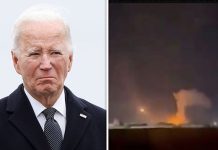
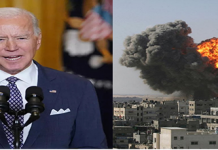
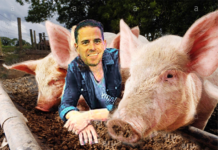
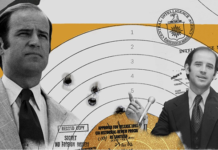
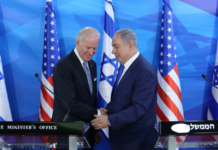
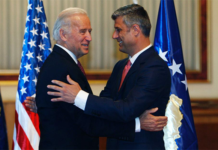
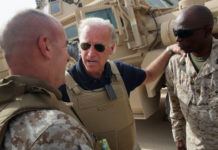
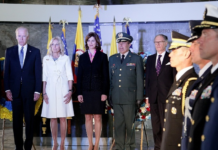
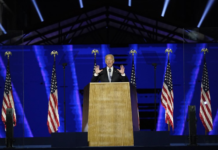

Good article.
The elephant in the room is the JFK assassination. If JFK was a committed cold warrior, why was he assassinated and by whom?
Perhaps someone who was a devout supporter of communism
A good article.
However, I do think that the Limited Test Ban Treaty was worth having despite its limitations. If Kennedy had not been assassinated then I think he would have wished to follow it up with further agreements.
Further reading:
“To Move the World: JFK’s Quest for Peace” by Jeffrey Sachs
Why did the Soviet Union honor the Father of the Cold War as per article in the New York Times? I am just curious.
https://www.nytimes.com/1985/05/09/world/harriman-honored-by-soviet-for-his-role-in-world-war-ii.html
I am not disagreeing with the description of Brown Brothers Harriman, but I like to allow both sides of a story to express themselves. So I am sharing what the company now has to say about the past.
https://www.bbh.com/us/en/bbh-who-we-are/our-story/200-years-of-partnership/brown-brothers-harriman-in-the-second-world-war.html
Although Henry Wallace was very supportive of the Soviet Union for many years, he later became very disillusioned with the Soviet Union as shown in the link below:
https://delong.typepad.com/sdj/2013/02/henry-a-wallace-1952-on-the-ruthless-nature-of-communism-cold-war-era-god-that-failed-weblogging.html
Please change sometimes.
Sorry I said ”please change sometimes” I meant to say “People change sometimes”
Mind you, both statements are okay, as change is usually a good thing.